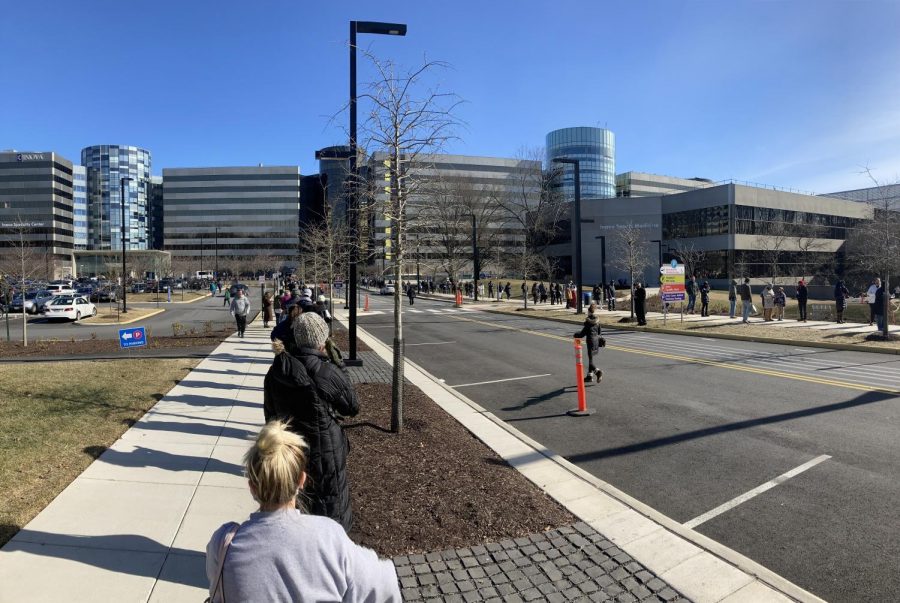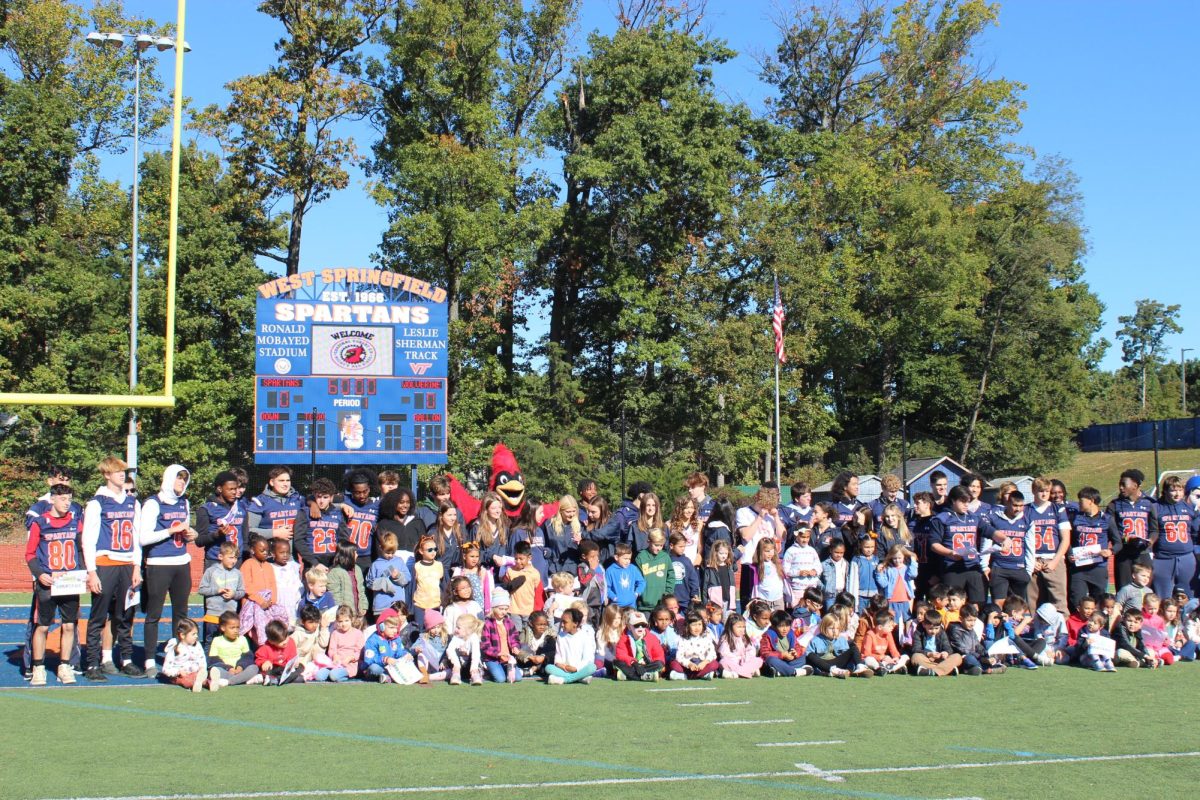Inoculation disorientation
Photo courtesy of Rev. Dr. Albert Triolo
People line up at an Inova Hospital waiting to be inoculated.
February 2, 2021
Multiple teachers expecting to receive their second dose of the COVID-19 vaccine were greeted with the news that their appointments were canceled on Monday evening.
At the time, it was unclear whether the cancellations were a technical error or if appointments were canceled in order for all teachers to receive at least their first dose before second doses were administered. Inova Health released a statement earlier today on twitter explaining what happened. “Appointment cancellations for 2nd dose COVID-19 vaccines were sent Monday night in error during a routine technical update to our system,” read the statement. “These vaccine appointments remain in our system and will be honored on the day it was scheduled. We apologize for the error.”
The news comes just in time for the FCPS school board to make their decision on returning to in-person learning. Teacher unions such as the Fairfax County Federation of Teachers (FCFT) and the Fairfax Education Association (FEA) have been outspoken proponents of waiting until teachers are fully inoculated and the waiting period afterwards is completed. “Educators want more than anyone to be back in schools,” said Tina Williams, FCFT President, in a statement, “but COVID-19 continues to surge in our community. We urge Fairfax County Public Schools to alter the return to school timeline given the current health metrics and this unfortunate shift in vaccine availability for school staff.”
Current results show that the Pfizer vaccine has a 52% efficacy after two weeks of only the first dose while Moderna has a 80.2% efficacy rate at the same point in time. FCPS employees are slated to get either Moderna or Pfizer.
The United States is expected to enter yet another dark chapter in the COVID-19 pandemic with strains coming from the United Kingdom, South Africa, and Brazil that spread quicker. Dr. Henry Walke, Director of the Division of Preparedness and Emerging Infections, which is a branch of the CDC, during a conference call said, “Because the variants spread more rapidly, they could lead to more cases and put even more strain on our already heavily burdened health-care systems.”





